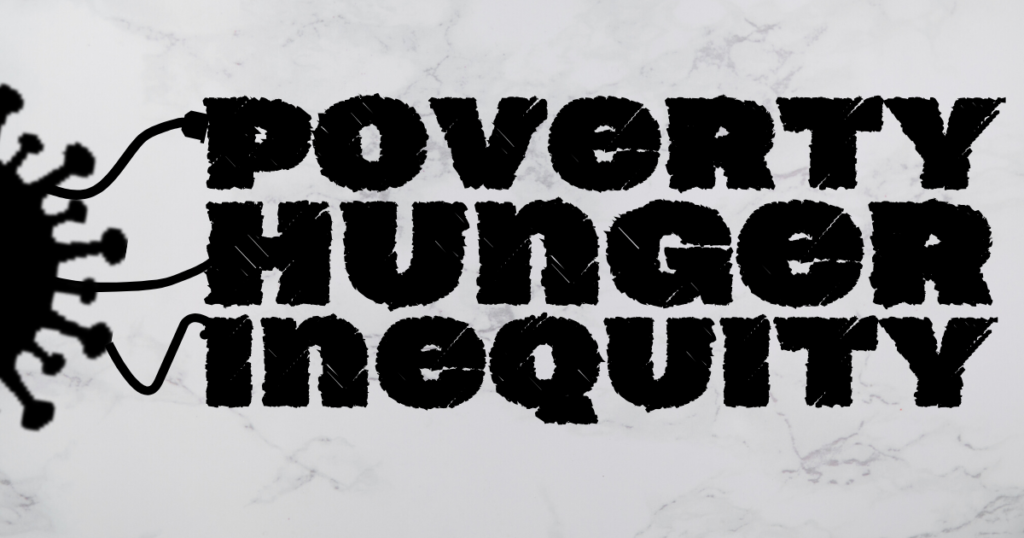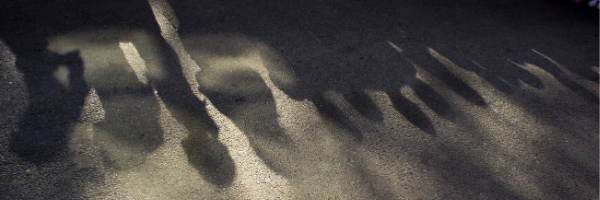
Poverty, Hunger, Racial Inequality Supersized Amid Coronavirus
By AdministratorBefore the coronavirus outbreak, food insecurity was already a serious problem in the United States. In 2018, 1 in 9 residents were food insecure—that’s 37 million people, including 11 million children. Poverty already hindered the well-being of 38.1 million U.S. residents, including 16% of the nation’s children. The nearly 2.3 million people in U.S. prisons and jails were already at higher risk of chronic and infectious disease, and had lower life expectancies. Racial inequality was already a devastating and seemingly intractable problem.
Enter COVD-19. The virus is not only causing illness and death for hundreds of thousands of people, but it is also shutting down businesses and furloughing employees, closing schools, and stopping travel. As a result of the virus, alongside economic upheaval, all of the structural inequalities existing in the United States have been highlighted and amplified:
- Unemployment claims have swelled to 9.9 million over the past two weeks, and a Federal Reserve estimate suggests COVID-related employment reductions could reach as high as 47 million—that’s a 32% unemployment rate. “Essential workers” who are still on the job face dangerous working conditions with little support.
- Unhoused people who rely on group settings to meet their basic needs, like food and hygiene, risk exposure to life threatening illness just to eat, sleep, or bathe.
- Millions of people in jails, prisons, or ICE detention centers live in the crosshairs of coronavirus.
- People with disabilities encounter mounting challenges to their well-being.
- Domestic violence is on the rise and survivors may be trapped with their abusers amid shelter-at-home orders.
- Black people are suffering extremely disproportionate rates of infection and death from COVID-19.
- And as we head into tornado season, we know that the impacts from any natural disaster during this public health crisis will be magnified by the spread of the virus.

What does all this mean for humanists?
It means the humanist values of reason, compassion, equality, and hope are needed more than ever. It means that we have to do whatever we can for those who are in jeopardy during these perilous times.
It means that Foundation Beyond Belief is shifting its operations to focus on mitigating the impacts of COVID-19 for as long as is appropriate.
Please consider a gift to support people impacted by COVID-19 as you’re able. FBB is working with our beneficiaries, Ghana staff, BBN teams, and other partners to evaluate where humanist dollars are most needed and will use and distribute funds where they can do the most good.
Not all of us are in a position to give money right now. There are other ways you can contribute! Some of us may not be able to share our time either. Part of our responsibility as humanists is to be attendant to our own needs, and the needs of those close to us, because many of us are in jeopardy now, too. For ways to care for your community and yourself, see our resource on Mutual Aid Groups.
We have a lot of work to do: for our neighbors, for our world, for ourselves. It’s daunting. But humanism has always risen to the hardest challenges. Let’s do some good together in the face of this one.
To learn more about how COVID-19 affects vulnerable communities, check out these articles—and watch for future blog posts on these issues:
Food Insecurity
- COVID-19 Heaps Pressure on Nation’s Foodbanks
- 'A perfect storm': US facing hunger crisis as demand for food banks soars
- Navajo Nation: Fears of hunger as COVID-19 lockdown to intensify
- In the poorest county, in America’s poorest state, a virus hits home: 'Hunger is rampant'
Income Insecurity and Worker Rights
- Unemployment Claims Could Match Last Week’s 6.6 Million
- COVID-related employment reductions could reach 47 million
- Low-wage workers of color taking a major hit amid coronavirus
- Farmworkers deemed ‘essential’ but are left unprotected during coronavirus pandemic
- Janitors, housekeepers and sanitation workers are at new risks
- 41 Transit Workers Dead: Crisis Takes Staggering Toll on Subways
Poverty
- The devastating impact that COVID-19 will have on poor Americans
- Poverty is the virus that puts us at COVID-19 risk
- For Homeless People, Covid-19 Is Horror on Top of Horror
- Virus Outbreak Highlights Structural Inequalities
Racial Inequality
- Covid-19 is disproportionately taking black lives
- 'It's a racial justice issue': Black Americans are dying in greater numbers from Covid-19
- Coronavirus is killing black people in the U.S. at disproportionately high rates
Mass Incarceration/ICE detention
- COVID-19, incarceration and our public health
- Covid-19 Poses a Heightened Threat in Jails and Prisons
- As coronavirus cases rise, some states have instituted early release. But it isn’t enough.
- 'Terrified of dying': Immigrants beg to be released from detention as coronavirus spreads
Disability
- People with disabilities are the forgotten vulnerable community in the age of COVID-19
- “We’re being punished again”: How people with intellectual disabilities experience COVID-19
- ‘It’s Hit Our Front Door’: Homes for the Disabled See a Surge of Covid-19
Domestic Violence
- A New Covid-19 Crisis: Domestic Abuse Rises Worldwide
- Global Lockdowns Resulting In 'Horrifying Surge' In Domestic Violence, U.N. Warns
- In quarantine with an abuser: surge in domestic violence reports linked to coronavirus

